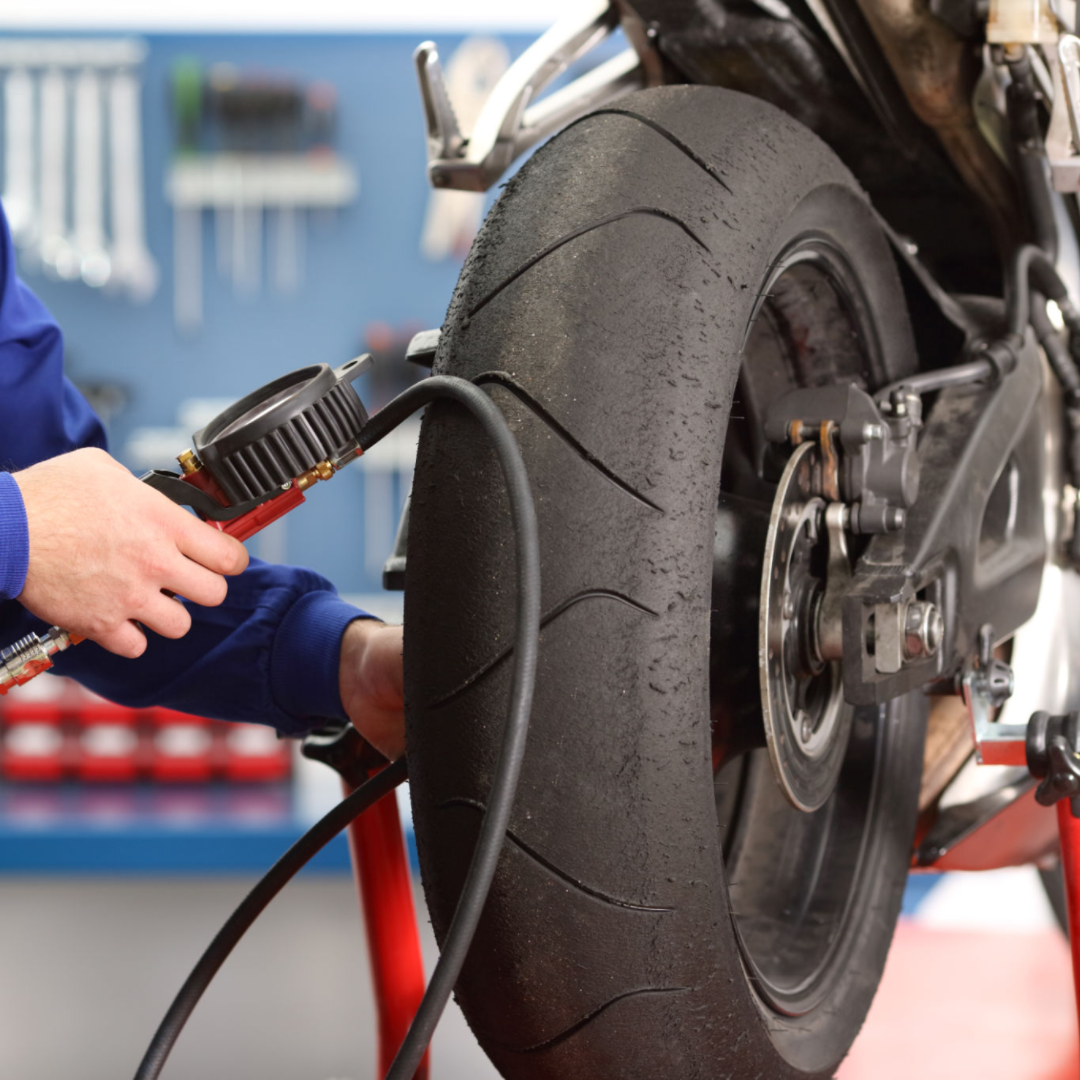Updated: 25.4.25
Disclaimer: This article is intended for informational purposes only. Always consult your owner's manual or a professional mechanic for advice tailored to your specific motorcycle and tyres. Use the information at your own risk.
 Motorcycle tyres are the only thing between you and the road — making them crucial for both performance and safety.
Motorcycle tyres are the only thing between you and the road — making them crucial for both performance and safety.
A quick glance is never enough. In this guide, we’ll show you how to properly inspect your motorcycle tyres and ensure your ride stays safe and smooth.
Why Regular Motorcycle Tyre Inspections Matter
1. Safety First
Worn or damaged tyres increase your risk of losing control. Inspections can spot issues before they lead to dangerous accidents.
2. Extending Tyre Life
Routine checks allow you to catch small problems early, saving money and prolonging the lifespan of your tyres, much like regular health check-ups keep you in peak condition.
How to Inspect Your Motorcycle Tyres
Dry Rot and Cracks
Look for cracking along the tread and sidewalls. If dry rot is present, replace the tyre immediately.
Uneven Wear
Uneven tread can indicate alignment or suspension issues. Address these early to avoid replacing tyres prematurely.
Punctures and Leaks
Spray soapy water over the tyre and watch for bubbles — a tell-tale sign of leaks or punctures needing urgent repair.
Tyre Pressure
Use a tyre pressure gauge before every ride. Proper inflation prevents uneven wear and improves handling.
Tread Depth
When tread reaches the built-in indicators, it’s time for new tyres. Less tread means less grip, especially in wet conditions.
Correct Tyre Size
Always match tyre size and load ratings recommended in your bike's owner manual for optimal performance.
Signs Your Motorcycle Tyres Need Replacing
- Age: Over 5 years? Replace them — even if they look fine.
- Tread: Depth less than 1/32 inch (0.8mm)? Time for a change.
- Damage: Cuts, bulges, or punctures demand immediate replacement.
- Handling: Notice a rougher ride or unstable handling? Inspect your tyres.
When to Replace Front vs Rear Tyres
Front tyres provide stability; inspect for uneven wear and feathering.
Rear tyres handle most of the power; check for flat spots and heavy tread wear.
Whether you're riding with Soft EVA tyres or GrippMoz tyres, good maintenance is key.
In Summary
Inspecting your tyres is one of the easiest ways to stay safe and save money. Think of it as a small step that guarantees bigger rewards — safer rides, better performance, and more thrilling adventures!
FAQs
Why is my motorcycle tyre wearing out quickly?
Possible reasons include improper inflation, an aggressive riding style, or poor wheel alignment.
How often should I check my tyre pressure?
Check before every ride or at least weekly, even when the bike isn't being used.
How do I know when to replace motorcycle tyres?
Look for reduced tread depth, cracking, punctures, and uneven wear. Trust your gut — if something feels wrong, get them checked.
Can I replace just one tyre?
Yes, but for optimal handling, replacing both tyres at once is often the better choice.
How long do tyres last?
On average, front tyres last around 3,700 miles and rear tyres about 1,800 miles, depending on your riding style and maintenance.
Need New Tyres or a Safer Ride? 🏍️
If your inspection points to worn tread, cracking, or aging tyres, don’t wait—swap them out before your next ride!
Whether you're replacing tyres or upgrading your kid’s first bike, RiiRoo has you covered.
Browse our full range of Kids Ride-On Motorbikes and ensure every ride starts with confidence.





Share:
Can You Make Money With Go-Kart Racing?
What Happens if an Air Filter Gets Wet?